A&S Faculty News
Summer 2018
August 2018
Clarke Receives Library of Congress Appointment
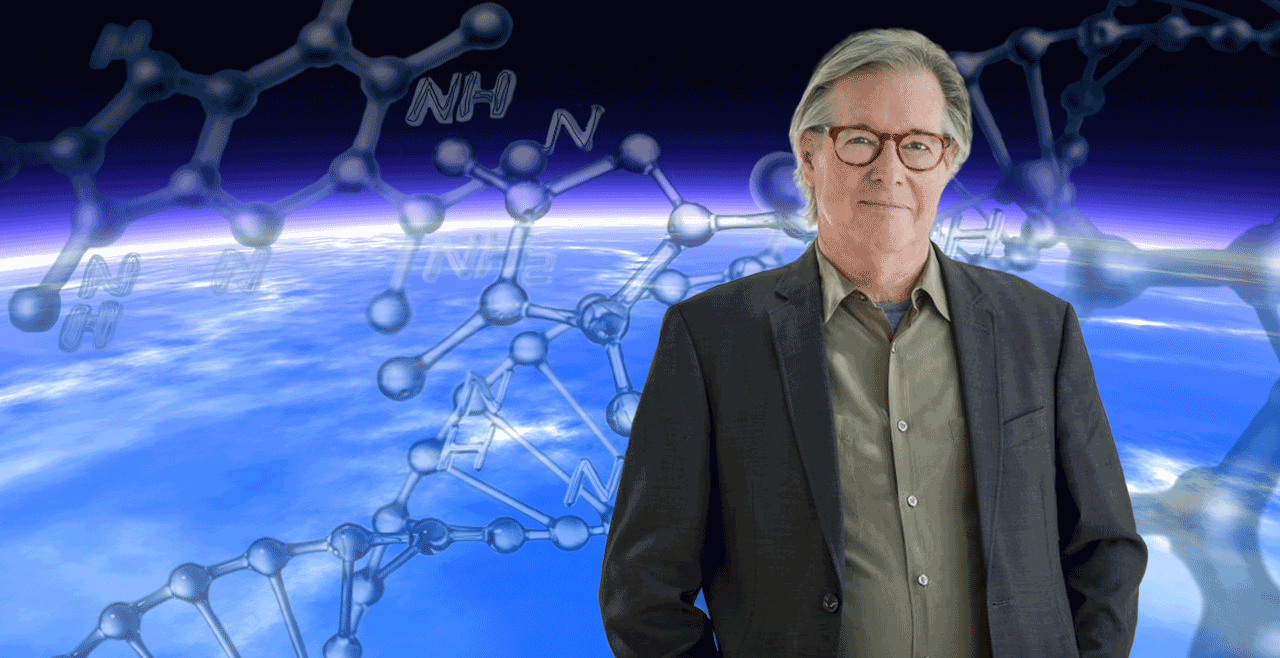
Bruce Clarke, Paul W. Horn Professor of Literature and Science in the Department of English, has been appointed as the sixth Baruch S. Blumberg Chair in Astrobiology by the Library of Congress. The announcement came Aug. 20. It is an appointment that will take Clarke to the John W. Kluge Center at the Library of Congress in Washington, D.C., for a 10-month residency that begins in December 2018. The astrobiology chair at the John W. Kluge Center is a collaboration between the NASA Astrobiology Program and the Library of Congress. The program encourages holders of the Blumberg Chair to conduct research at the intersection of the science of astrobiology and its humanistic and societal implications. Clarke's research focuses on 19th- and 20th-century literature and science, with special interests in systems theory, narrative theory and ecology. At the Library of Congress, he will work on a project titled, "Astrobiology, Ecology and the Rise of Gaia Theory." For the complete story, follow this link.
July 2018
Dhurandhar Study Links Perceived Social Status & Eating Behaviors
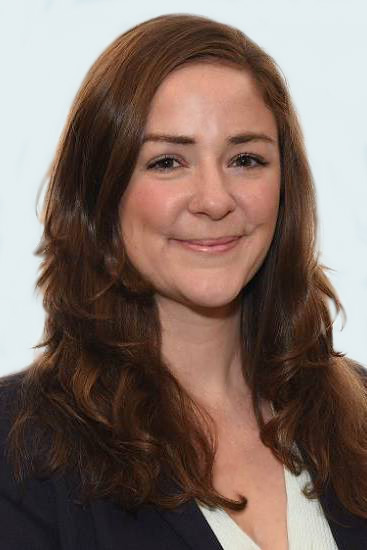 Emily Dhurandhar, an assistant professor in the Department of Kinesiology & Sport
Management (KSM), is co-author of a new pilot study that shows people's willingness
to overeat may be tied to how they see themselves, or rather, where they perceive
themselves be on the social ladder. The research, "Subjective Social Status is Associated with Compensation for Large Meals – A Prospective
Pilot Study," published online July 29 in the journal Appetite, revealed that the lower someone
believes they are on the social ladder, the more likely that person is to continue
to eat after a big meal. "We had participants eat a large lunch that was 60 percent
of their daily requirements—60 percent of the energy we calculated their body would
need to get through the day," Dhurandhar told Texas Tech Today in a Sept. 7 news article.
"Then we let them eat whatever they wanted outside the lab at home. ... We found that
someone's subjective social status—their perception of where they are in the social
hierarchy—is associated with their ability to compensate for these meals. Those with
low social status tended to take in more energy than they burned under these feeding
conditions." Also on the research team were Nadeeja N. Wijayatunga, Bridget Ironuma,
and Bailey Rusinovich—all from KSM—and John Dawson, an assistant professor in the
College of Human Sciences' Department of Nutritional Sciences. The team used the MacArthur
Scale of Subjective Social Status to measure research subjects' perceived social status.
This scale is commonly represented by a ladder: at the top of the ladder are the people
who are the best off—those who have the most money, the most education and the most-respected
jobs—while the people who are the worst off are at the bottom of the ladder, those
with the least money, the least education and the least-respected jobs or no job at
all. Those who reported the lowest perceived social status ate more after their large
lunch, whereas those with higher perceived social status ate fewer calories, Dhurandhar
said, noting that eating behaviors were not affected by any traditional measures such
as income or education. "You might have all the money in the world, but if you don't
perceive that it's enough, that still will impact your behaviors," she said.
Emily Dhurandhar, an assistant professor in the Department of Kinesiology & Sport
Management (KSM), is co-author of a new pilot study that shows people's willingness
to overeat may be tied to how they see themselves, or rather, where they perceive
themselves be on the social ladder. The research, "Subjective Social Status is Associated with Compensation for Large Meals – A Prospective
Pilot Study," published online July 29 in the journal Appetite, revealed that the lower someone
believes they are on the social ladder, the more likely that person is to continue
to eat after a big meal. "We had participants eat a large lunch that was 60 percent
of their daily requirements—60 percent of the energy we calculated their body would
need to get through the day," Dhurandhar told Texas Tech Today in a Sept. 7 news article.
"Then we let them eat whatever they wanted outside the lab at home. ... We found that
someone's subjective social status—their perception of where they are in the social
hierarchy—is associated with their ability to compensate for these meals. Those with
low social status tended to take in more energy than they burned under these feeding
conditions." Also on the research team were Nadeeja N. Wijayatunga, Bridget Ironuma,
and Bailey Rusinovich—all from KSM—and John Dawson, an assistant professor in the
College of Human Sciences' Department of Nutritional Sciences. The team used the MacArthur
Scale of Subjective Social Status to measure research subjects' perceived social status.
This scale is commonly represented by a ladder: at the top of the ladder are the people
who are the best off—those who have the most money, the most education and the most-respected
jobs—while the people who are the worst off are at the bottom of the ladder, those
with the least money, the least education and the least-respected jobs or no job at
all. Those who reported the lowest perceived social status ate more after their large
lunch, whereas those with higher perceived social status ate fewer calories, Dhurandhar
said, noting that eating behaviors were not affected by any traditional measures such
as income or education. "You might have all the money in the world, but if you don't
perceive that it's enough, that still will impact your behaviors," she said.
Nagihara Corrects 'Lunar Warming' Misconceptions
Seiichi Nagihara, associate professor of Geophysics in the Department of Geosciences, is lead author of a new study, "Examination of the Long-Term Subsurface Warming Observed at the Apollo 15 and 17 Sites Utilizing the Newly Restored Heat Flow Experiment Data From 1975 to 1977," that published May 8 in the Journal of Geophysical Research: Planets. Many in the online media may have misinterpreted the study's findings, which show that Apollo astronauts' activity likely contributed to slight, local lunar surface warming. Nagihara clears up those misunderstandings in a question-and-answer interview that published July 18 in Texas Tech Today.
Pappas Sepsis-Detecting Chip Works in Human Study
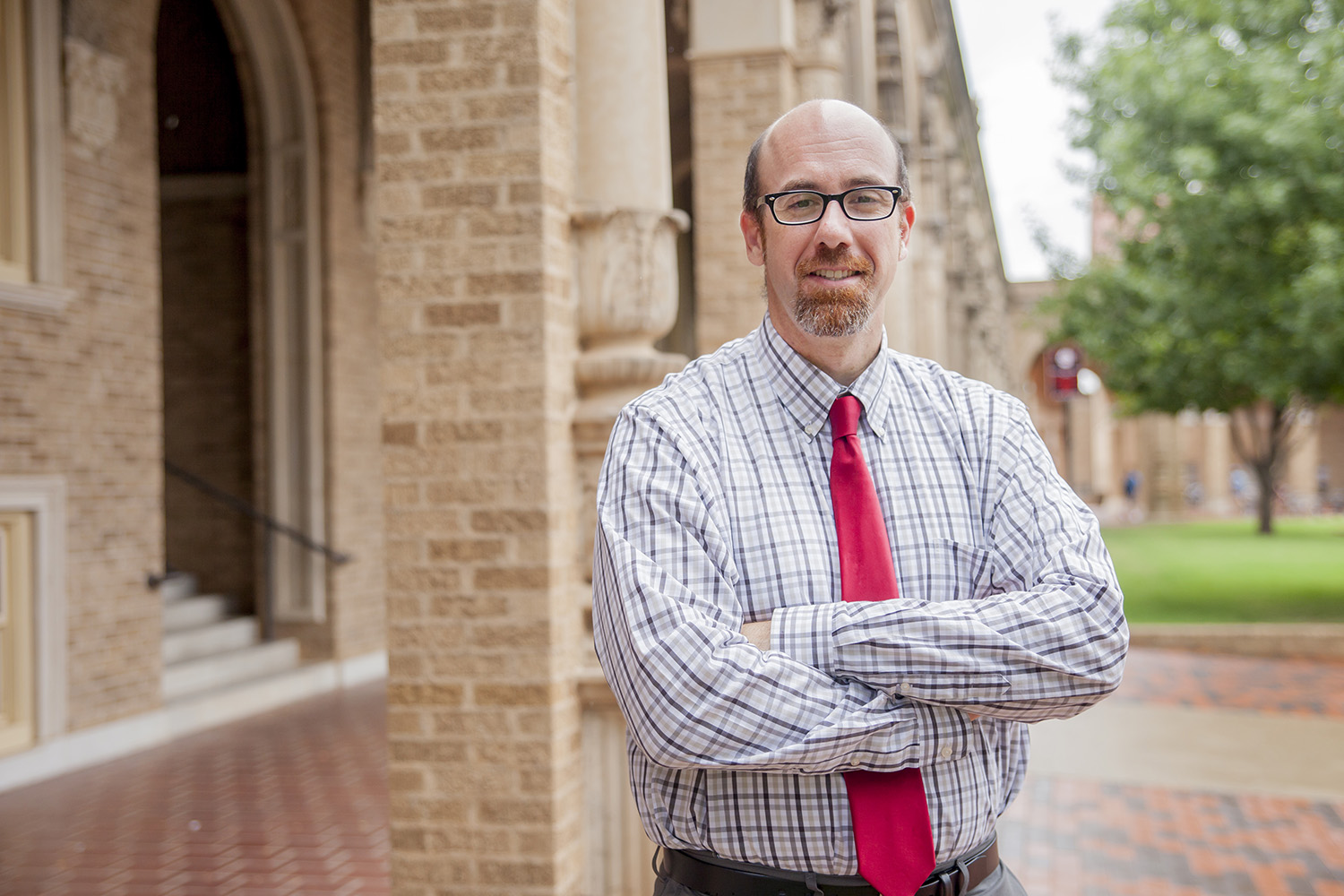
Dimitri Pappas, associate professor, and Ye Zhang, graduate student, both in the Department of Chemistry & Biochemistry, are closer to bringing their sepsis-detecting chip into commercial use. Two years ago, Pappas and Zhang invented a microfluidic chip believed to help detect sepsis, a life-threatening blood infection. That test was conducted using stem cells, with encouraging results. So their team, including Dr. John Griswold, professor and chair emeritus in the Texas Tech University Health Sciences Center Department of Surgery, conducted a clinical study using actual human blood. And it's working. Two recently published papers from the study, one in the journal Analyst and one in Analytical Chemistry, report 98 percent accuracy in detecting sepsis with the chip. Sepsis is a potentially fatal condition in which the body's immune system goes into overdrive trying to kill a blood-borne bacterial infection. Although sepsis is easily treatable with antibiotics, it hasn't always been easy to detect in the past. The conventional detection method—a bacterial culture to find the bacteria responsible for the infection—takes anywhere from two to 15 days. A person can die from sepsis in that time. The chip pursues a different approach. Instead of looking for the bacteria causing sepsis, it looks for the activation of certain white blood cells, which indicate the body is trying to fight an infection. Using less than a drop of blood, the chip can detect sepsis in as little as four hours. "Patient samples are usually where a project fails," Pappas told Texas Tech Today in a story dated July 9. "We were able to detect sepsis and in many cases track improvement in health using patient blood. It is extremely gratifying to see the idea work so well in a clinical study." Pappas expects to spend the next 12-18 months analyzing all the data from the clinical study, which was funded by a grant from The CH Foundation. "Ultimately, this type of work—for it to be successful—has to be commercialized," he said. "It has to be out there in the hands of physicians. We want it to be adopted outside the walls of this building and outside the city of Lubbock."
June 2018
Williams Father & Daughter Both Win Fulbrights
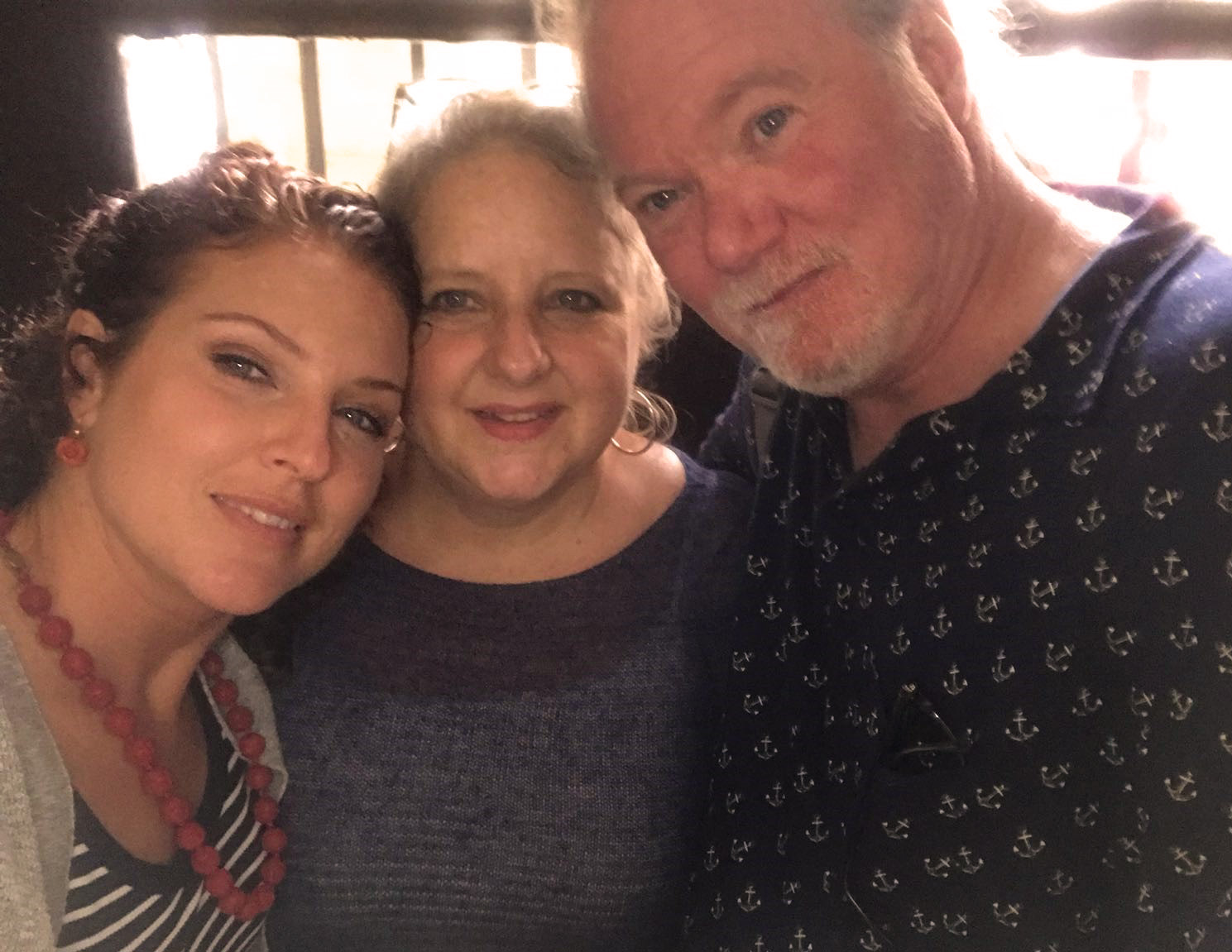 Jeffrey Williams (on right in photo), professor of ethnology and linguistics in the
Department of Sociology, Anthropology & Social Work, has been named a Fulbright specialist
in anthropology—and enjoys the distinction of congratulating his daughter, Gretchen
Williams, a pre-doctoral researcher in the Department of History, on winning a Fulbright
award the very same year. "Gretchen applied for a Fulbright and got it on the first
try," Professor Williams said in a Texas Tech Today article dated June 15. "The funny
thing was, she and I got a Fulbright in the same year in two different kinds of programs,
and the odds of that happening are astronomical." Gretchen's Fulbright took her to
Seville, Spain, to conduct the research she proposed for her Fulbright scholarship:
studying the 16th- and 17th- century cultural background of the Roma people (sometimes
referred to as "Gypsies"), in part because of her love of flamenco dancing. Williams-the-elder
applied to be a Fulbright specialist in Thailand, Mongolia and Bhutan. "Bhutan, which
is a tiny kingdom in the Himalayas, is trying to develop an anthropology program there,
so I'm hoping for that," he said. Being named a Fulbright specialist puts Williams
on a list with others in his field, with the possibility of being chosen to work on
projects overseas sometime in the next five years.
Jeffrey Williams (on right in photo), professor of ethnology and linguistics in the
Department of Sociology, Anthropology & Social Work, has been named a Fulbright specialist
in anthropology—and enjoys the distinction of congratulating his daughter, Gretchen
Williams, a pre-doctoral researcher in the Department of History, on winning a Fulbright
award the very same year. "Gretchen applied for a Fulbright and got it on the first
try," Professor Williams said in a Texas Tech Today article dated June 15. "The funny
thing was, she and I got a Fulbright in the same year in two different kinds of programs,
and the odds of that happening are astronomical." Gretchen's Fulbright took her to
Seville, Spain, to conduct the research she proposed for her Fulbright scholarship:
studying the 16th- and 17th- century cultural background of the Roma people (sometimes
referred to as "Gypsies"), in part because of her love of flamenco dancing. Williams-the-elder
applied to be a Fulbright specialist in Thailand, Mongolia and Bhutan. "Bhutan, which
is a tiny kingdom in the Himalayas, is trying to develop an anthropology program there,
so I'm hoping for that," he said. Being named a Fulbright specialist puts Williams
on a list with others in his field, with the possibility of being chosen to work on
projects overseas sometime in the next five years.
Weiss Takes Tornado Research to the Field
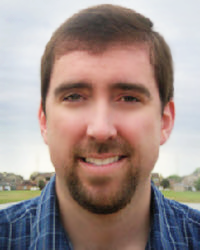 Chris Weiss, professor of atmospheric science in the Department of Geosciences, is
making his way through the Great Plains (May 27-June 12) to collect data during the
2018 tornado season. The expedition is part of a three-year project sponsored by the
National Science Foundation's National Robotics Initiative aimed at using radar and
unmanned aircraft technologies to better understand how tornadoes develop in severe
thunderstorms. It is a collaborative effort among Texas Tech University, the University
of Colorado and the University of Nebraska. "For the first two years of the project,
we have been using computer models to better understand the specific regions of storms
that we should sample to get the most impactful improvement in tornado forecasts,"
Weiss told Texas Tech Today in an article published June 8. "This final year of the
project features a field demonstration effort to make the actual measurements in these
regions." Weiss, who also is an affiliate of Texas Tech's National Wind Institute,
brought two Texas Tech Ka-band mobile Doppler radar trucks on the trip to make measurements
in coordination with unmanned aircraft platforms built by the University of Colorado.
Chris Weiss, professor of atmospheric science in the Department of Geosciences, is
making his way through the Great Plains (May 27-June 12) to collect data during the
2018 tornado season. The expedition is part of a three-year project sponsored by the
National Science Foundation's National Robotics Initiative aimed at using radar and
unmanned aircraft technologies to better understand how tornadoes develop in severe
thunderstorms. It is a collaborative effort among Texas Tech University, the University
of Colorado and the University of Nebraska. "For the first two years of the project,
we have been using computer models to better understand the specific regions of storms
that we should sample to get the most impactful improvement in tornado forecasts,"
Weiss told Texas Tech Today in an article published June 8. "This final year of the
project features a field demonstration effort to make the actual measurements in these
regions." Weiss, who also is an affiliate of Texas Tech's National Wind Institute,
brought two Texas Tech Ka-band mobile Doppler radar trucks on the trip to make measurements
in coordination with unmanned aircraft platforms built by the University of Colorado.
College of Arts & Sciences
-
Address
Texas Tech University, Box 41034, Lubbock, TX 79409-1034 -
Phone
806.742.3831 -
Email
arts-and-sciences@ttu.edu
